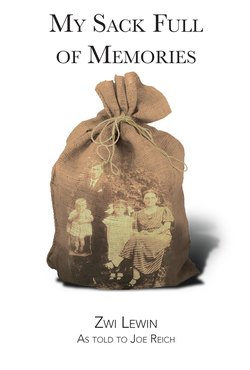Читать книгу My Sack Full of Memories - Zwi Lewin - Страница 13
На сайте Литреса книга снята с продажи.
Оглавление8
My uncle, Daniel, the eldest Lazovski son, lived in Yurburg, a town in Lithuania 150 kilometres directly north of Vishey. Yurburg was a pretty town built on the slopes of a modest mountain on the northern shore of the Neiman River. It had a wooden synagogue, but much of the town was of brick construction of a more northern European style with pitched roofs rather than the barn-like design of Vishey.
Yurburg (Jurbarkas)
Yurburg is the Yiddish name for Jurbarkas and, like Vishey, was close to a border, but Vishey, being down south, abutted Russian-occupied Poland, whereas the north of Lithuania was right on the border with East Prussia. This was a State of Germany separated from the rest of Germany following the Treaty of Versailles after World War One. The German invasion of Poland ensured East Prussia was once more a seamless part of the German nation. Yurburg was only 10 kilometres from this border with Germany. Here, there were nearly 2000 Jews, about 40 per cent of the population. They owned sixty-nine of the seventy-five businesses and eighteen of the nineteen light industries.
Daniel was a motor mechanic and driver, and had his own leased workshop. He was single, as was Aunt Rivka, who had also moved from Vishey and was living somewhere near Yurburg.
Of all the Lazovski uncles and aunts, only Uncle Yosef and his wife, Sara, had children. Yosef had married Sara Glazer from Yurburg and they had two sons. Azriel was ten and Lolek nine, both older than me when I met them in April 1941. Yosef was also a motor mechanic and leased a garage near the Glazer family home in Yurburg where they all lived with his parents-in-law. In the 1939 Jurbarkas telephone directory, there is a Jankelis Glazeris listed, but no Lazovski. The town had 116 telephones, forty-one belonging to Jews. Vishey had fourteen telephones in total, but none to my grandparents’ home.
Lithuania had avoided the fate of Poland in 1939 as a concession to the fact the Germans and Russians were bedfellows. The Germans, following personal threats from Adolf Hitler, had already humiliated Lithuania earlier in 1939 by occupying the country’s major port area on the Baltic.
The Lithuanians considered themselves neutral, but in reality, ninety per cent of their trade was with Germany; the people were mostly sympathetic to the Germans and felt they were subjugated under the Russians, whom they detested.
However, the German and Soviet allegiance also meant the people of Yurburg maintained their close historic relationship with the neighbouring towns on the German side of the border, a border that was so open that traders from Yurburg would take their goods to the markets in Germany for the day. This relationship lulled the people of Yurburg, including the Jewish population, into a false sense of calm, considering the frightening closeness of the border. What followed was a terrifying shock to them.
Yurburg with German soldiers during WW1 1915
We arrived in Yurburg on Friday, 20 June 1941, coming from Vishey. My mother carried a gift of honey, most likely from beehives tended by my grandfather Chaim. We stayed with Uncle Yosef and Sara in the Glazer family home where I met Azriel and Lolek for the first time. It was natural for boys to immediately bond, and within hours we were inseparable. Fortunately, we all spoke Yiddish. My sister, being twelve, was closer to my mother and had no interest in us boys.
My mother and we children had come from Vishey to meet the family. Daniel, who lived nearby, and Rivka had also come to see us for the first time. The fact that we were in Yurburg rather than Vishey for our family reunion that weekend is the key that unlocks the rest of this story.
I doubt if the honey was ever tasted.
